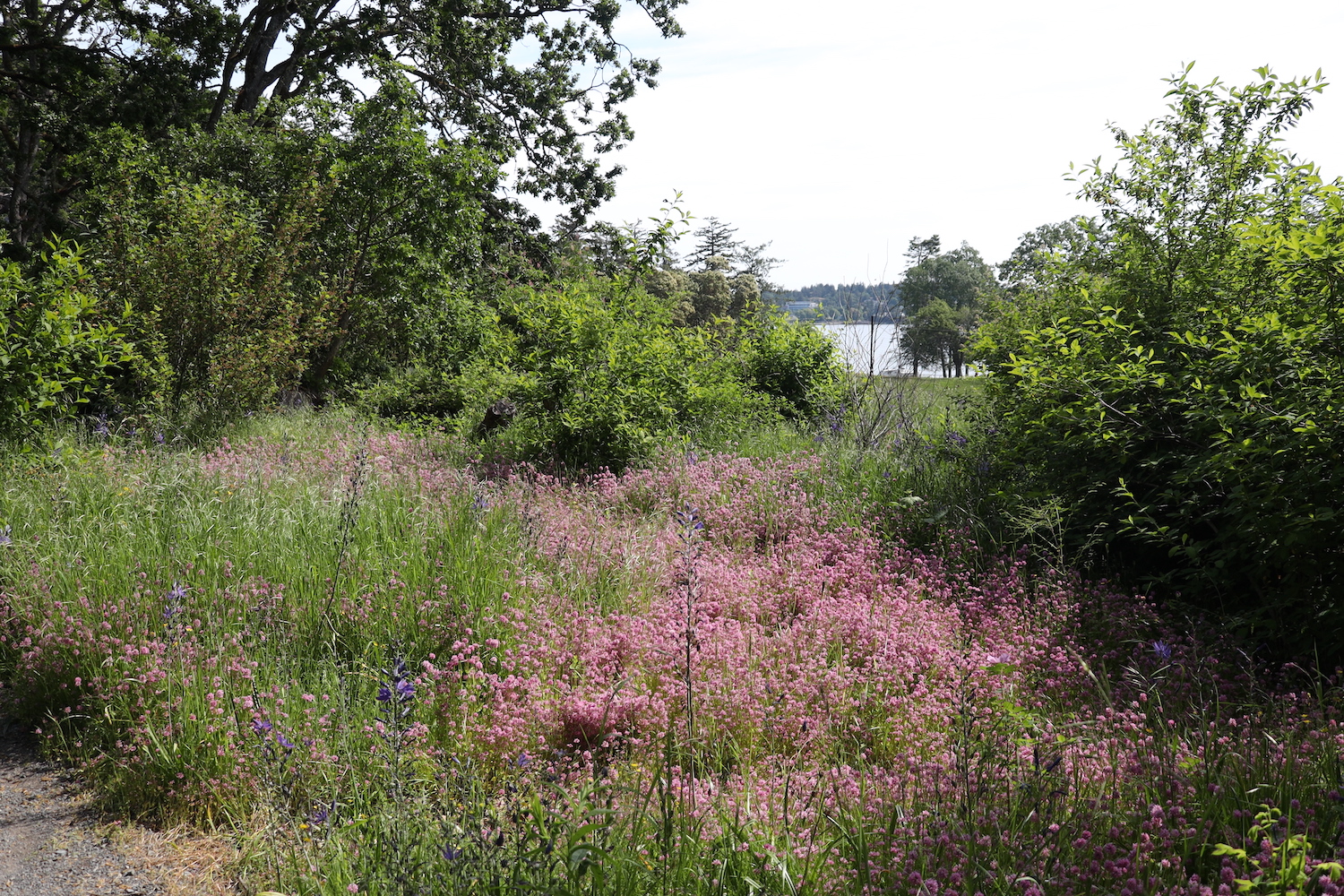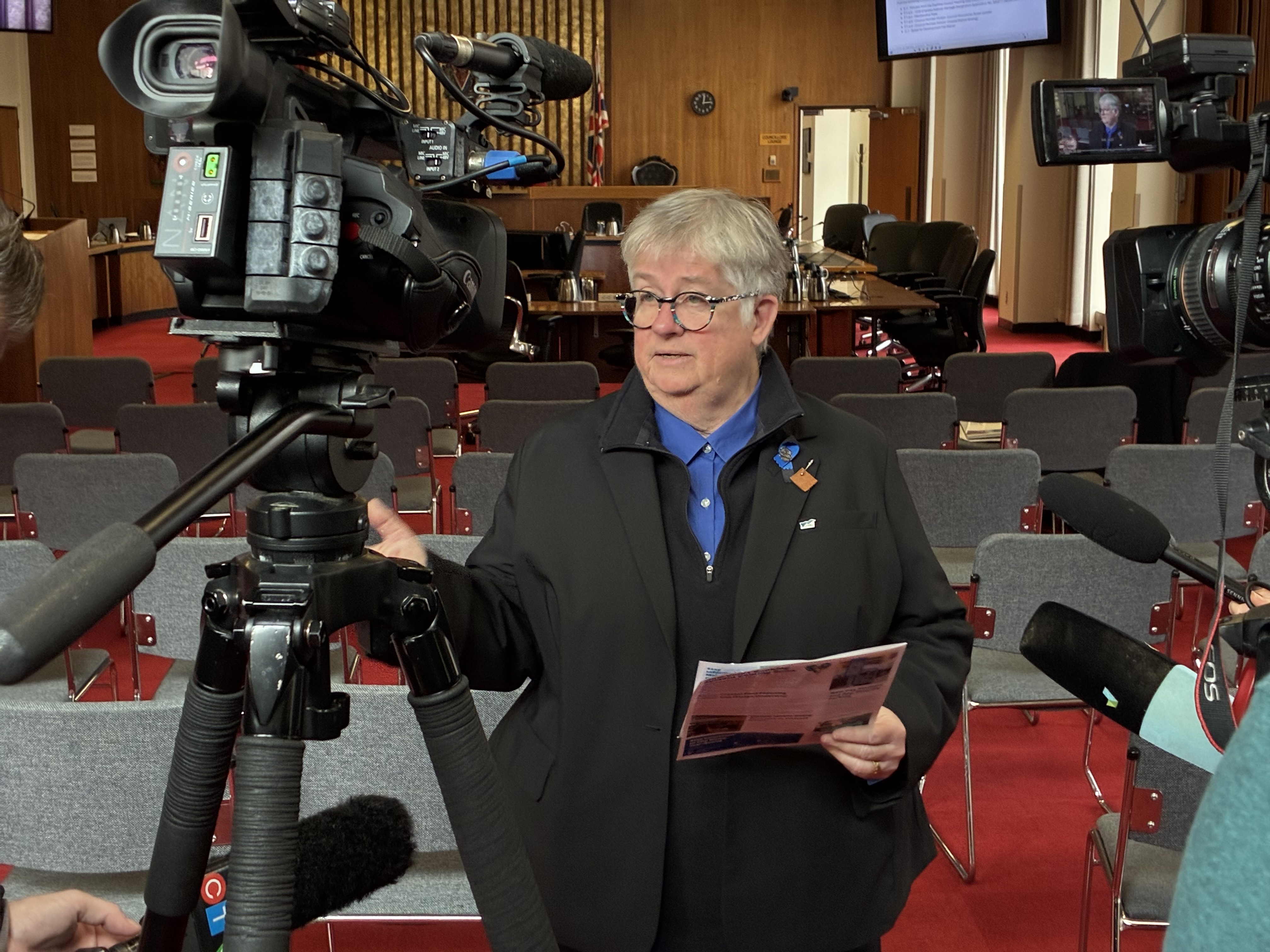'Community members helping community members': A volunteer-based program met a high demand for counselling during COVID
The Esquimalt Neighbourhood House Society trains volunteers to counsel 250 people with mental health and addictions needs each year
Colin Smith / Capital Daily
Over the past 13 years, Jay Morritt has experienced many moments with his clients at the Esquimalt Neighbourhood House Society that have stuck with him.
It’s particularly meaningful when a typically closed-off, outwardly tough client will say to him, “I don't even think I really realized this until now, but I don't think anyone has ever really listened to me.”
For over 15 years, the Esquimalt Neighbourhood House Society has offered free, volunteer-run counselling for mental health and addictions. In recent years, about 250 people annually have attended two or more counselling sessions.
To help people feel as though they’ve been heard on a deep level, or to feel hope where they didn’t before, is Morritt’s passion. Since starting at the neighbourhood house, it has become his life’s work.
“It's really been life changing for me in terms of what it's brought to my life to be of service in this way to folks in my community, and I'm just really grateful for it,” Morritt said.
This program is one of many supported through the Esquimalt Neighbourhood House Society that will benefit from a recent influx of support. The neighbourhood house is among nine others to jointly receive over $150,000 raised through the Capital Daily Holiday Donation Drive in partnership with United Way.
Morritt first experienced counselling as a client over a decade ago. After years of trying to make progress working on himself, it changed his life in ways that nothing else he’d tried ever had and opened his eyes to the power of therapy in helping people move forward with their lives.
But it wasn’t until he was on the other side—when he was the one helping people make breakthroughs as a counsellor at the Esquimalt Neighbourhood House Society—that he fell in love with counselling. Thirteen years and a degree later, he now has his own practice and volunteers at the neighbourhood house in his spare time.
Some of the counsellors, like Morritt, are working or retired professional therapists, while others are members of the community. Regardless of their backgrounds, all volunteers must complete a 10-month training program before they’re ready to sit down to their first session.
“It's not uncommon for someone who's done the training program to go on and then decide that they want to pursue counselling as a profession,” Morritt said, himself included.
As sessions are conducted during the counsellor’s free time, many take place outside of work hours. The neighbourhood house asks those who complete the training program to provide 200 hours of one-on-one counselling, at their own pace.
When a new client applies to the program, the counselling co-ordinator meets with them briefly before connecting them with the counsellor they feel would be the best fit. Some counsellors, such as those who are retired, might take on five clients a week while their working counterparts only see one in that time.
“The program is definitely geared towards making it work for real people on both ends,” Morritt said.
Stay connected to your city with the Capital Daily newsletter.
By filling out the form above, you agree to receive emails from Capital Daily. You can unsubscribe at any time.
Demand for counselling services at the neighbourhood house rose 64% in the final nine months of 2020, which the program was able to accommodate due to its dedicated team of volunteers.
And as demand for the program rose, so did the number of counsellors. Typically the neighbourhood house has an average of about 35 to 40 active counsellors, but that number rose to 55 to accommodate the heightened need for mental health support.
Statistics Canada reported that people’s mental health has suffered during the pandemic, particularly those who have struggled with their mental health in the past. From Morritt’s perspective, the pandemic has cast a light on a need for mental health support that has always been there.
“The desire in the community for folks to access supportive counselling is really significant. We're always meeting high demand,” he said. “COVID has added stress to people's lives for sure.”
In reducing this stress, he emphasized the significance of making high-quality mental health support accessible through these programs, especially due to the financial barriers people often face to counselling.
The cost of counselling in British Columbia can be steep. The recommended rate for a 50-minute individual therapy session by the BC Association of Clinical Counsellors ranges between $120 to $150, whereas clients can access the neighbourhood house’s services at no cost.
“I think it’s absolutely vital,” he said. “I think it changes people’s lives. One of the most remarkable things among many remarkable things about the program is that we offer this service for free.”
Prior to the pandemic, sessions were conducted in private counselling rooms in the neighbourhood house. Over the last year, sessions have been held online and over the phone.
In this new environment, with clients in their own homes and a screen between them and their counsellor, Morritt has found that they are often more relaxed and ready to open up. This can pose a unique challenge for counsellors, who might hear more information at a faster rate than before, or are unable to see their client’s full body to detect how they are feeling.
Even without every counsellor having a degree in psychology on their wall, the program has a big impact on the lives of hundreds of community members every year.
“The service that the volunteers deliver is remarkable,” he says. “It's community members helping community members, which I think we need to see a lot more.”
Stay connected to your city with the Capital Daily newsletter.
By filling out the form above, you agree to receive emails from Capital Daily. You can unsubscribe at any time.

















